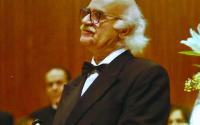5 July 2005Marie Woolf
Tony Blair's hopes of a breakthrough to tackle climate change were dealt a blowwhen President George Bush made it clear that he would not help the Prime Minister to strike a deal on global warming at the G8 summit in return for his support on Iraq.
As G8 leaders prepared to gather in Gleneagles for Wednesday's summit, the US Presidentsignalled that there would be no quid pro quo on climate change.
In an apparent snub to Tony Blair, who has been trying to get the US on board over global warming, Mr Bush said he was heading to the G8 "with an agenda that I think is best for our country". Asked by Sir Trevor McDonald, in an interview to be broadcast tonight on ITV1, whether the Prime Minister could expect "unstinting support" because of Britain's backing for Iraq, Mr Bush replied: "You know, Tony Blair made decisions on what he thought was best for the people of Great Britain, and I made decisions on what I thought was best for Americans. I really don't view our relationship as one of quid pro quo."
The President said yesterday he would not sign up to an international legally binding agreement that "looks like Kyoto" to cut climate change and instead favoured co-operation on "technologies", including "more nuclear power".
But Mr Bush appeared to give ground on the science of global warming when he accepted that "to a certain extent" it was man-made.
Other G8 nations played up chances of a breakthrough. Jacques Chirac, the French President, said at a news briefing with Russia's Vladimir Putin and Germany's Gerhard Schröder: "We have had some difficult discussions and it looks like we are heading towards an agreement."
Mr Blair, in an interview with Time magazine, appeared to acknowledge that the US President would not back him at Gleneagles because of his support over the Iraq war.
Asked if Mr Bush owes him over his support for Iraq, Mr Blair replied: "That isn't the right way to look at it. What the President should do is what's right for America and the world." He added: "The G8 is not a place where you can negotiate a new climate change treaty."
In the interview Mr Bush said he would be prepared to scrap subsidies for US farmers to help African producers "if our fine friends in the European Union" did so as well. This challenge will pit him against M. Chirac, who is bitterly opposed to scrapping subsidies under the EU's Common Agricultural policy.
Meanwhile, on Saturday, Mr Blair met Saudi Arabia's de facto ruler, Crown Prince Abdullah, to talk about a proposal to help raise Palestinian "living standards" on the Gaza Strip and West Bank.
http://news.independent.co.uk/world/environment/article296715.ece






